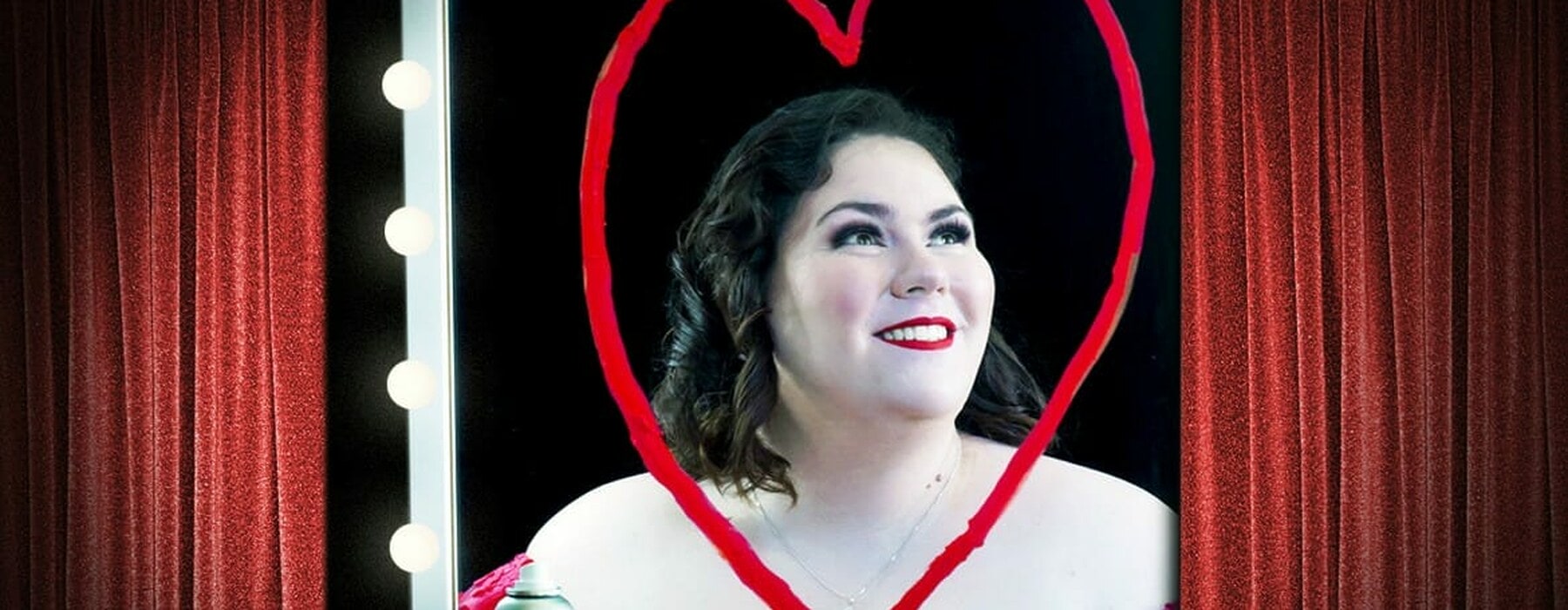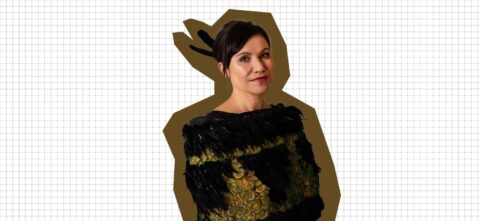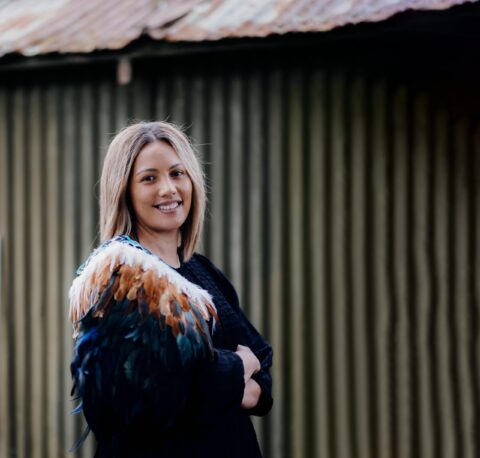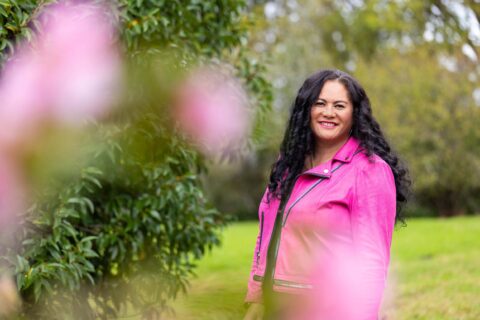A brilliant funny new play A Fat Girl’s Cry, talks about lived experience with fat and society’s obsession with a lack of it.
In a small outhouse in suburban Wellington, 23-year-old musical theatre graduate Celia Macdonald has been ticking away writing, directing, sewing, and rehearsing on a project that’s been three years in the making. Tipping her hat at some of Broadway’s greatest hits and with representation at its core, A Fat Girl’s Cry is poised to challenge audiences’ ideas around traditional stereotypes of what defines a ‘leading lady’.
“The play was originally going to be called Girls Cry, as I want to be considered a talented actress, not defined as a talented fat actress. But it’s also about crying out for help and to be taken seriously. We cry too, we feel emotions. It’s about taking ownership of the word fat, it’s not an insult, it’s a fact.”
On top of jazz and tap, the Wellingtonian started ballet lessons when she was three but stopped at 13 because she started to become body conscious. Ballet’s hard, she says, where you’re looking in mirrors wearing leotards and you’re taught to scrutinise your body and the lines it makes.
“Especially going through puberty, you start to notice the difference between you and the others in class. I’ve always been bigger and taller than everyone and it started to really influence me.
“When you see your skinny friend go, ‘Oh God I look so bloated, I’m so fat’, I thought, what the hell am I, then? If you think you’re overweight, what the hell do you think of me?
Dancing can be polarising for people as there’s a default position that bigger bodies can’t dance, but that’s not the case, she says.
“Tap’s amazing. It’s about rhythm, strength, and sound. You get to make noise and do cool tricks and it’s not necessarily about the look of your actual body. It feels more freeing and it’s more grounded as an artform.
“I’m naturally quite flexible, which I’ve been told is surprising ‘for someone like me’. I can do the splits on my left side, and people will try for years to do the splits and never get there due to genetics.”
Fat phobia is pervasive, she says. “You see it in media and popular culture – the side-kick, villains, or ‘less desirable’ characters will be chubby, less intelligent or used as comic relief. This then translates into society and we’re considered ‘less normal’. The thing is, size is just a factor, it doesn’t define a person, their personality or their worth in any way.”
At 15, Macdonald was diagnosed with an eating disorder “not otherwise specified” due to her size, for example.
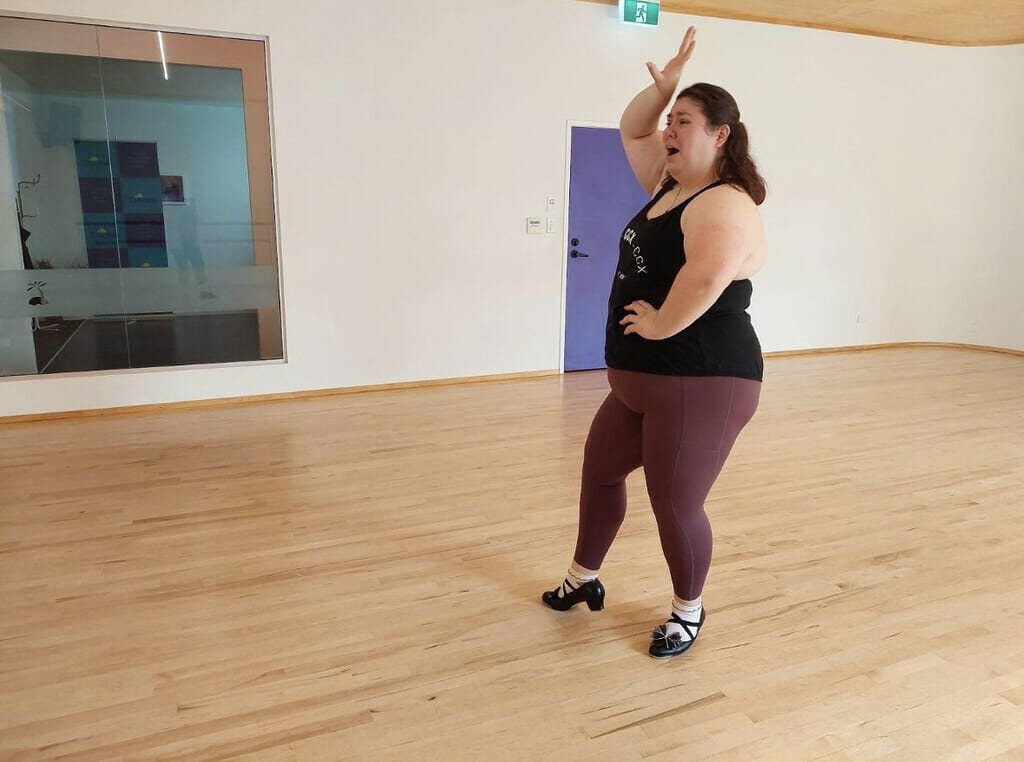
Having lost 10 kgs within a month, her doctor couldn’t understand that she would qualify for restrictive disorder or anorexia because she was considered overweight according to her BMI. It meant she continued disordered eating and is only now dealing with it thanks to the help of a psychologist.
“It’s so hard. Even with this play I had to fight the urge to think I’d look better if I tried to lose some weight but I’ve had to actively say ‘no, I’m doing this as I am’. People don’t realise that when you police your food it’s what leads to trouble. Now I find if I don’t treat food as good or bad, it’s less all-consuming.”
Macdonald was lucky to know from an early age that performing was what she wanted to do. And she found criticisms – ‘No one wants a fat actress’ from a friend, even – to give her the drive to secure a place at Musical Theatre (NASDA) in Christchurch in 2018.
Drama school was an incredible way for Macdonald to perfect her craft and make wonderful friends but it was also when she first realised stereotypical type-casting was a real problem in the industry, for her and others in her class.
“It felt so black and white and I felt like I had to really prove myself to be seen and feel like I was worthy to be there.”
Thinking the limitations were specific to drama school, Macdonald was particularly upset after rehearsing for weeks for a female lead role in a musical once she moved back to Wellington in 2020.
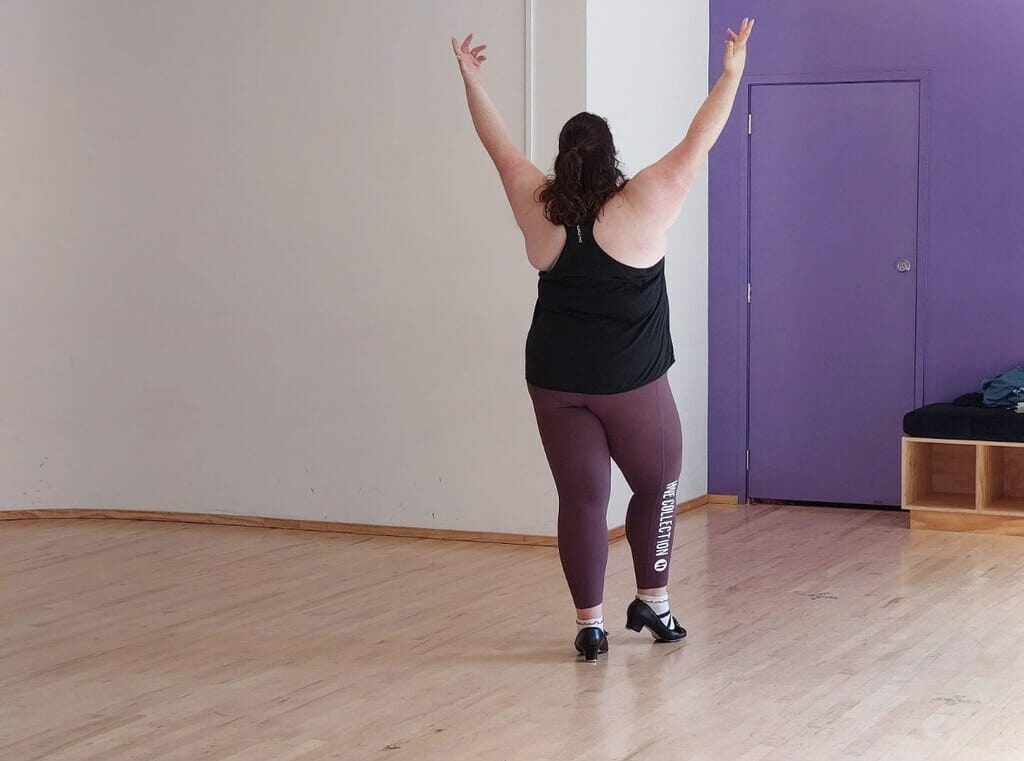
Contrary to popular belief there are rarely physical descriptions of characters in most plots so Macdonald thought, “why can’t she be played by someone who’s plus-sized? We feel those exact same emotions. And it was in Wellington, which is so diverse in its people and outlook”.
Instead, she was met with surprise at her choice of character to audition for, which was rude, small-minded, and a missed opportunity, she says.
“It was upsetting because I had worked incredibly hard but it prompted me to kick into full gear with writing and directing my own show. It was a major catalyst.”
Whether it’s the script-writers, directors, producers or casting crew, Macdonald thinks universally there’s an unnecessarily cautious approach to diversity, where people are frightened to stray away from traditional views in favour of clear paths of success and ticket sales.
On top of celebrating diversity, A Fat Girl’s Cry talks about her experiences in the industry, what needs to change, and how to do it. It will also be the first time her mother has seen it.
“My mum was apprehensive and worried about the show. As much as parents want to protect their children you can’t protect them from everything. She said it was upsetting – not for the idea itself – that people made me feel in such a way that I needed to do this show. But it’s more than about me now. Things have to change.
“It’s a lot, but I’m hoping it will be quite cathartic for me.”
Written, directed, and performed by Celia Macdonald, A Fat Girl’s Cry is showing at Bats Theatre 22-25 March. For more information see here.

